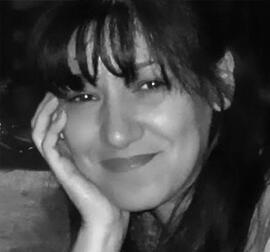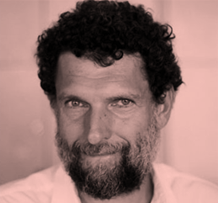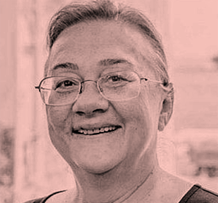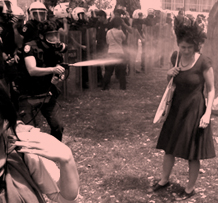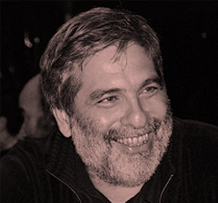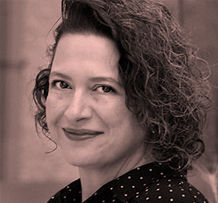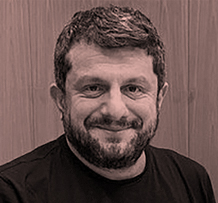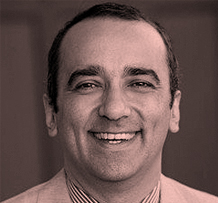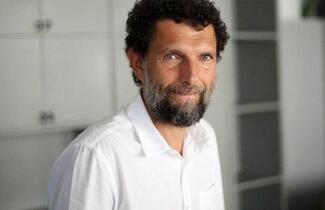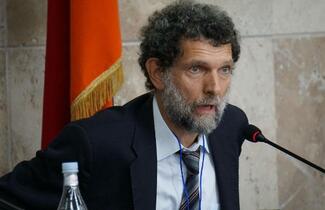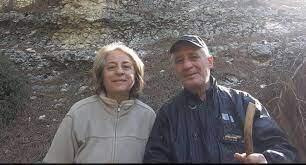The process that resulted in the 18-year imprisonment sentencing of filmmaker, documentarian, advertiser, and former Anadolu Kültür employee Mine Özerden started when she became involved in the Taksim Platform formed in opposition to the pedestrianization project of Taksim Square in 2012.
Born in 1965, Mine Özerden is a documentary filmmaker and advertiser. After receiving a degree in social anthropology, she graduated from the Cinema-TV department of Mimar Sinan University. For a while, she worked in the advertising industry. She received the IFSAK (Istanbul Photography and Cinema Amateurs Association) Documentary Achievement Award in 1993 for her documentary short Zilname, which told the story of the famous Istanbul cymbals and the Zildjian legend.
In 2001, she participated in the formation of the Cinema and Television Members Association. She started working at Anadolu Kültür that same year. She was involved in both the formation and the operating stages of establishments including Diyarbakır Art Center, Kars Art Center, and Diyarbakır Europe Cinema.
She took part in the formation of the Taksim Platform, initiated as a reaction to the projects of building a shopping center resembling the historical Topçu Kışlası (Military Barracks) and underground tunnels in the name of pedestrianizing Taksim Square in 2012. Initially made up of individuals, the Platform later became a part of the Taksim Solidarity which was formed by institutions coming together. The Platform was a non-hierarchical structure independent of institutional identity and operated on the basis of democratic participation and volunteerism.
On Friday, November 16th, 2018, 13 people were detained in operations held against civil society workers and academicians as a part of the investigation by the Istanbul Chief Prosecutor’s Office. As one of the people being investigated, Mine Özerden was not detained but called to the police station by telephone and released on bail after giving her statement.
People detained that day included Yiğit Ali Ekmekçi, Yiğit Aksakoğlu, Hakan Altınay, and Çiğdem Mater, who would all later be tried at the Gezi Trial with her.
In its statement on the operation, the Istanbul Police Department claimed that Osman Kavala organized and financed the Gezi protests through the Open Society Foundation (Açık Toplum Vakfı) and Anadolu Kültür. Included in the allegations were “organizing a meeting at DEPO owned by Anadolu Kültür AŞ with the aim of deepening and popularizing the Gezi Park events”, “bringing from abroad professional activists, educators, and facilitators of activism in order to maintain the continuation of the Gezi Park events under the headings of Civil Disobedience and Nonviolent Protest”, “aiming to set the agenda for the continuation of the Gezi Park process and possible Gezi-like events through their own media by engaging in acts of forming new media”.
The investigation, which included evidence collected by prosecutor Muammer Akkaş wanted for Fethullah Terrorist Organization (FETÖ) / Democratic Union Party of Syria (PYD) membership, came to an end in 2019. On February 19th, 2019, the Istanbul Public Prosecutor’s Office announced that the indictment filed after the investigation of the Gezi Park protests was sent to the 30th High Criminal Court of Istanbul. On March 4th, 2019, the 30th High Criminal Court of Istanbul accepted the indictment it had received. In the 657-page-long indictment, 16 people including businessperson Osman Kavala - imprisoned since November 1st, 2017 - and four others detained - one later arrested - in November 2018 (Çiğdem Mater Utku, Hakan Altınay, Yiğit Aksakoğlu, Yiğit Ali Ekmekçi) were asked to serve aggravated life sentences on the allegations of “attempting to overthrow the Turkish
Republic Government and to partly or wholly prevent the government from performing its duties.”
The first hearing of the trial took place at the 30th High Criminal Court of Istanbul on the 24th and 25th of June 2019. In the hearing where nine defendants plead their case, the court ruled for the discharge of Yiğit Aksakoğlu on the condition of judicial control, and the continued arrest of Osman Kavala.
The Prosecutor’s opinion announced on February 6th, 2020, demanded:
- To differentiate from the file the prosecution of Ayşe Pınar Alabora, Can Dündar, Gökçe Yılmaz, Handan Meltem Arıkan, Hanzade Hikmet Germiyanoğlu, Memet Ali Alabora and İnanç Ekmekçi and wait for the execution of their warrant for arrest,
- To penalize Osman Kavala, Yiğit Aksakoğlu, and Mücella Yapıcı for the crime of “attempting to overthrow the Turkish Republic Government and to partly or wholly prevent the government from performing its duties by using force and violence” per article 312 of the Turkish Penal Code (KCK),
- To penalize Çiğdem Mater, Ali Hakan Altınay, Mine Özerden, Can Atalay, Tayfun Kahraman, and Yiğit Ali Ekmekçi under article 39 of the Turkish Penal Code (KCK) for acting as aids in “the attempt to overthrow the Turkish Republic Government and to partly or wholly prevent the government from performing its duties by using force and violence” per article 312 of the Turkish Penal Code (KCK).
8 defendants including Osman Kavala were acquitted on the 6th hearing of the trial which took place on February 18th, 2020.
On January 22nd, 2021, the 3rd Criminal Division of the Istanbul Regional Court of Justice revoked the verdict of acquittal from the Gezi Trial. The Division ruled to deliver the case file to the court of first instance for re-examination and ruling. It was decided that the trial should continue with the procurement of missing evidence. The 36th High Criminal Court of Istanbul that had tried Kavala made the verdict to join the Gezi Trial with the case filed for the crimes of “attempting to remove constitutional order” and “political and military espionage”, in the hearing that took place on February 5th, 2021.
There was another decision to merge trials on April 28th, 2021. The 30th High Criminal Court of Istanbul ruled to rejoin the main case file which included Osman Kavala’s trial with the cases kept separate “because they were abroad” of Can Dündar, Memet Ali Alabora, Ayşe Pınar Alabora, Gökçe Tüylüoğlu, Handan Meltem Arıkan, Hanzade Hikmet Germiyanoğlu and İnanç Ekmekçi on the allegations of “attempting to overthrow the government.”
On July 28th, 2021, the 16th Criminal Division of the Supreme Court revoked the acquittal of 35 defendants including the members of the Beşiktaş Football Club’s supporter group Çarşı. It was approved to join the case in which these defendants were tried for the Gezi protests with the main Gezi Park trial. The Supreme Court wanted to merge the two cases.
In the hearing for the merged trials on October 8th, Kavala’s lawyer Köksal Bayraktar asked for a separation of the case files and that his client be discharged. The prosecutor demanded that Kavala remain under arrest due to the nature and skill of his crime. The court ruled for the continuation of Kavala’s arrest on the basis of there being “strong criminal suspicion and tangible evidence.”
The fifth hearing of the trial took place on February 21st, 2022. The court ruled for the separation of the case files and the continuation of Kavala’s arrest.
On March 4th, 2022, the prosecutor for the hearing demanded aggravated life imprisonment for defendant Osman Kavala on remand, and defendant Mücella Yapıcı pending trial, based on the accusation of “attempting to overthrow the Turkish Republic Government by using force and violence.” Defendants Çiğdem Mater Utku, Ali Hakan Altınay, Mine Özerden, Can Atalay, Tayfun Kahraman, and Yiğit Ali Ekmekçi were asked to receive 15 to 20 years in prison each for “aiding the attempt to overthrow the Turkish Republic Government by using force and violence.”
The sentencing hearing of the trial took place on the 22nd and 25th of April 2022. It was ruled that Osman Kavala - under arrest for 1637 days at the time - serve aggravated life imprisonment without parole on the allegations of attempting to overthrow the government (Turkish Penal Code 312) and that Mücella Yapıcı, Çiğdem Mater, Ali Hakan Altınay, Mine Özerden, Tayfun Kahraman, Can Atalay, and Yiğit Ali Ekmekçi be taken under arrest and serve 18 years in prison each for aiding the attempt to overthrow the government. Yapıcı, Mater, Altınay, Özerden, Kahraman, and Atalay were arrested that day.
Mine Özerden, Mücella Yapıcı, and Çiğdem Mater are currently held at the Bakırköy Women’s Closed Penitentiary.
The 3rd Penal Chamber of the Istanbul Regional Court of Justice upheld the 18-year prison sentence given to Özerden on 28 December 2022, announcing that it found it appropriate.
The 3rd Criminal Chamber of the Supreme Court of Appeals decided on the objection regarding the verdicts given in the case filed in the Istanbul 13th High Criminal Court on September 28, 2023. The 3rd Criminal Chamber approved the 18-year prison sentence given to Mine Özerden for 'aiding the attempt to overthrow the government of the Republic of Turkey'.
